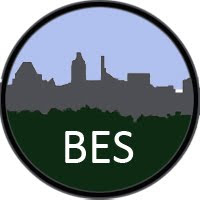Baltimore Data Jam Rules and Regulations
Competition Rules and Judging Guidelines are available in the Baltimore Data Jam Competition Teacher Guide.
Student Privacy
Student privacy is important to us. All adult team advisors will receive parental/guardian consent forms for permission of student participation and the release of limited personally identifiable student information (i.e., student name, grade level and gender, school name, hometown, photographs, video or audio files of the student, and project entry). These consent forms should be completed and signed for each participating student and returned to the student’s team advisor. Should a participant lose track of their consent form, the form can be accessed at the bottom of this page.
Team advisors are asked to handle the distribution and collection of parental/guardian consent forms for their student participants. To ensure receipt of materials, please submit all team members’ parental/guardian consent forms together. Completed forms must be received by the Baltimore Ecosystem Study no later than May 20th, 2020. These forms may be scanned or photographed and e-mailed to caplanb@caryinstitute.org or mailed to the following address:
Bess Caplan
Baltimore Ecosystem Study
1000 Hilltop Circle, TRC 173
Baltimore, MD 21250
Publicity & Rights
By entering a project into the Baltimore Data Jam Competition, the project creator(s), parent(s)/guardian(s), and the team advisor grant to the Baltimore Ecosystem Study, a program of the Cary Institute of Ecosystem Studies world-wide, royalty-free, non-exclusive license to use all materials submitted by the student teams into the Baltimore Data Jam Competition for publicity purposes.
The Baltimore Ecosystem Study may post information about the Baltimore Data Jam Competition in the BES newsletter, on the BES website, in the BES annual report, in the local newspapers, and on the BES and Baltimore Data Jam Competition Facebook pages. Project entries may be published without compensation through any or all of the above sources in whole or in part. Submitting a project entry does not guarantee it will be publicized. We will not publicize any student information without prior parental/guardian consent.
Plagiarism
Project entries cannot include plagiarized work. Plagiarism is considered the deliberate copying of someone else’s thoughts, ideas, expressions, words, artistic expressions, or scientific work without formally acknowledging its source. Plagiarism includes project entries that are comprised substantially of someone else’s work, copying words or ideas from someone else without giving credit, the failure to put quotation marks around unmodified content that was copied from an outside source, and the use of photos, graphs, charts, or other images without acknowledging their source. Project entries that include plagiarized content will be eliminated from the competition. We recommend teams working together to help each other avoid plagiarism. The best way to ensure your work is original is to be creative!
This competition requires students to use information that is not their own, and thus merits increased diligence to proper source acknowledgement. Students will use data (scientific work) that has been collected by a group of researchers. Students are also welcome to use any of the graphs or images provided on the “Data Sets” portal/webpage in their project entries. In order to avoid plagiarism, students should be sure to properly cite all sources of information for content that isn’t their own original work. This includes noting the data source and the sources of any images copied or modified. Any standard citation form is permissible (APA, MLA, etc.)
Citations
All project entries must have a complete reference list of all resources used. Any standard citation form is permissible (APA, MLA, etc.), but the same form should be used for all citations for a given project entry.
Additional Disclaimers
- It is the responsibility of each participant and team advisor to obtain and read these rules and regulations for the Baltimore Data Jam Competition.
- The Cary Institute of Ecosystem Studies and/or the Baltimore Ecosystem Study will not be responsible for any claims, costs, liabilities, damages, expenses, or losses arising from 1) The Cary Institute of Ecosystem Studies’ use of project entries, 2) the participants’ involvement in the competition, 3) technical failures of any kind, including, but not limited to, computer viruses or equipment malfunctions, 4) travel to and from the teacher workshops, Data Jam Expo, and other related activities, 5) the use of prizes, and 6) any events outside the Cary Institute of Ecosystems Studies’ reasonable control.
- The Cary Institute of Ecosystem Studies reserves the right to reject any project entry for any reason and at any time, at its own discretion.
- The Cary Institute of Ecosystem Studies may refuse to award a prize if a winning participant does not follow proper registration and project entry procedures, or these rules and regulations.
- The Cary Institute of Ecosystem Studies is not responsible for any technical failures that may affect participation in the Baltimore Data Jam Competition.
Questions?
Any questions regarding the Baltimore Data Jam Competition should be directed to caplanb@caryinstitute.org
Download Consent Form




